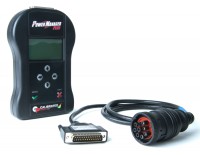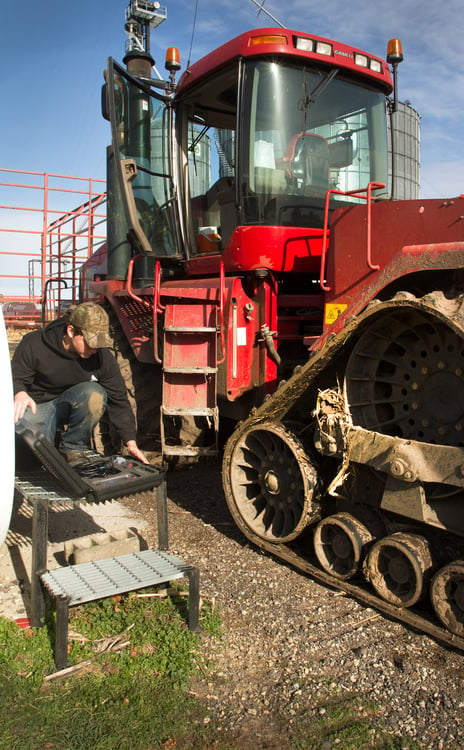Farmers all around the country have utilized box programmers or other various items for tuning their tractors. With tractors becoming more and more electronic based, the need for tuning your combine has gone up. It can be overwhelming if it's something new to you and your equipment, so let's dive into the most common questions asked in regards to up-rating your tractor with a custom programmer.

1. How safe is tuning my tractor?
It can be intimidating plugging hardware into your expensive equipment the first time. How safe is it? What can happen if something goes wrong? Well here's some reassuring news, it is extremely safe. Given the expertise and how easy it is to use, tuning is a breeze. Reliability is the main goal here, and with reliability comes no down time with your tractor. Time is money and that's the top goal of the tuner. Keep your combine running, keep money flowing, and bringing you a more efficient yield. The Power Manager is designed with the Tractor's OEM ratings in mind. What's this mean? It means your tuner has taken the physical limitations of your tractor's transmission, clutches, and drive axles, etc. that work with your series. Once those numbers are calculated, your tuner takes what you need out of your tractor and gives you the calibration that best suits you.
2. How does custom tractor tuning work?
You will receive a handheld device, it plugs into your 9- pin connector. You follow a few simple prompts on the hardware's screen essentially having you read off your stock file. From there you plug the programmer into a PC and use the software provided to send the file to your tuner. Great news, even if you're not computer savvy, your tuner has a staff willing to give full support in case any snags are hit. Tuning typically takes a day or two for turnaround. You will receive your up-rate levels you desire, you drag and drop them using the software, and you flash your tractor. It's that simple. Once tuned, you have the option of flashing back to stock if need be. It's truly an easy process with low risk and high reward.

3. How much horsepower can custom tuning add?
As we discussed a little bit earlier, it truly depends on the peak power levels your driveline can handle as specified by the OEM specs. Tuners ultimately will help aid you with what your needs are and how much your tractor can handle. If you have any questions, you can ask your tuner and his support staff and they'll be more than happy to help work on what you need. Giving your tractor more power, while keeping the reliability. The best of both worlds.
4. Is it going to cost more fuel to run at higher levels?
The big question! No. It will not cost more fuel for you to operate your tractor at a higher level. You may see fuel savings with the tractors that use extra power to "shift up, throttle back" or run at higher ground speeds. Let's go over an example; you establish a ground speed of 8 MPH while doing tillage work. Tuning adds 50 horsepower, so you can shift your tractor up a gear or two and throttle back to maintain the 8 MPH. The combine goes from running 10th gear at 2150 RPM to running 12th gear at 1800 RPM. Lower engine speed means less fuel per hour similar to using the overdrive in a truck. This benefits your tractor and brings you more power at the same fuel level, if not more.
As you can see, tuning is a major benefit to the farmer. While this goes over the most commonly asked questions, please feel free to reach out to a tractor performance specialist by clinking the button above. You'll fill out a form and have a specialist discuss any questions you have regarding tractor tuning and what calibrations can do for your combine.




